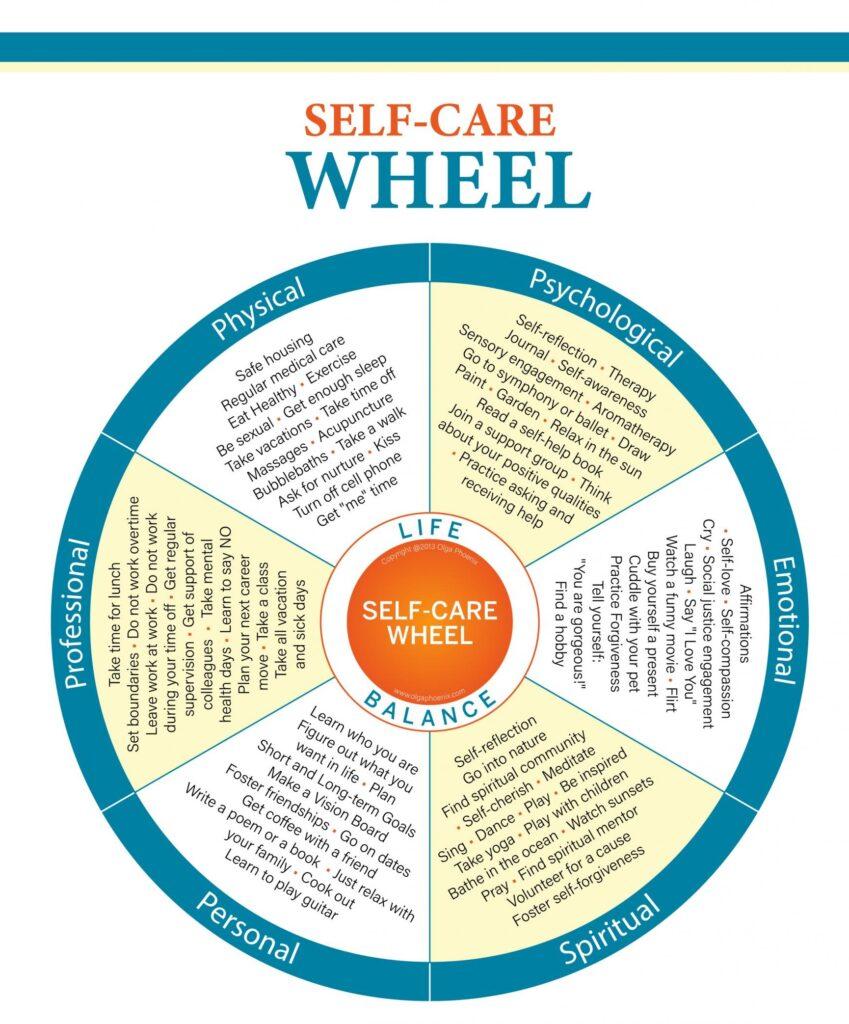
The journey of an entrepreneur is nothing short of an exhilarating adventure. It’s a path filled with dreams, aspirations, and boundless possibilities, where the pursuit of innovation, determination to bring change, and the zeal to make a difference reign supreme. Yet, amid these grand visions, the entrepreneurial journey is also marked by challenges and pitfalls. It’s a demanding path that often leaves individuals susceptible to stress, anxiety, and a variety of physical and mental health issues. In this blog post, we aim to uncover the entangled web of procrastination and how delayed decisions can profoundly impact entrepreneurial growth.
The Entrepreneur’s Dilemma: Procrastination Unveiled
Understanding the Procrastination Challenge
Procrastination is a formidable adversary that confronts entrepreneurs at various points on their journey. It’s the act of delaying or postponing essential tasks and responsibilities, often leading to a detrimental impact on one’s goals and well-being. Procrastination might manifest as putting off important meetings, avoiding making crucial decisions, or delaying investments that could propel a business forward. Its consequences are manifold, affecting various aspects of an entrepreneur’s life and the growth of their ventures.
Entrepreneurs, driven by ambition and vision, often assume that procrastination is a hurdle they can effortlessly overcome. However, understanding the intricacies of this challenge is the first step to surmount it. Procrastination isn’t merely about laziness or a lack of discipline; it’s a complex phenomenon intertwined with deep-rooted psychological factors.
The Underlying Factors
Procrastination often serves as a mask for underlying issues, and it’s these issues that make it such a formidable challenge. Among the most common underlying factors are:
Perfectionism: Entrepreneurs, eager to create a flawless product or service, might find themselves paralyzed by the pursuit of perfection. This often leads to procrastination as they delay decisions in the hopes of achieving an unattainable level of excellence.
Fear of Failure: Entrepreneurial ventures are fraught with risks, and the fear of failure can be paralyzing. This fear might manifest as hesitation to make decisions that could lead to setbacks, even if they are essential for progress.
Lack of Self-Confidence: Entrepreneurs who lack self-confidence might doubt their own abilities to make sound decisions. This self-doubt can lead to a cycle of procrastination as they second-guess themselves and postpone taking action.
It’s crucial for entrepreneurs to recognize these underlying factors because, without this awareness, addressing procrastination can be akin to treating the symptoms rather than the root cause. By unearthing these factors and addressing them, entrepreneurs can pave the way for more effective decision-making and, ultimately, entrepreneurial growth.
The Consequences of Delayed Decisions
Procrastination is not without its costs, and these costs extend far beyond the immediate impact of delayed decisions. Here’s a look at the profound consequences of procrastination on entrepreneurial growth:
Missed Opportunities
Entrepreneurship is about seizing opportunities and turning them into successful ventures. Procrastination can cause entrepreneurs to miss out on these opportunities. Whether it’s delaying a pitch to potential investors or hesitating to launch a new product, opportunities can slip through their fingers, leading to missed revenue and stunted growth.
Financial Setbacks
In the world of entrepreneurship, time is money. Delayed decisions can result in financial setbacks, from increasing costs to missing revenue-generating opportunities. For example, postponing the decision to secure funding or invest in marketing can lead to financial strain or even business failure.
Project Delays
Procrastination can lead to project delays, which can have a domino effect on an entrepreneur’s success. A project that falls behind schedule can disrupt the entire business plan, affect product launches, and, in some cases, lead to customer dissatisfaction or loss.
Stagnation and Innovation Constraints
Entrepreneurial growth often hinges on innovation and adaptation. Procrastination can stifle innovation as entrepreneurs delay implementing new strategies or exploring fresh ideas. Over time, this can result in stagnation and loss of competitiveness in the market.
These consequences are significant and can hinder not only the growth of an entrepreneurial venture but also the mental and emotional well-being of the entrepreneur. The stress and anxiety that often accompany procrastination can further exacerbate these issues, creating a negative cycle that impacts every aspect of an entrepreneur’s life.
Overcoming Procrastination: Strategies for Timely Decisions
Overcoming procrastination is a vital step in fostering entrepreneurial growth. Here are some strategies entrepreneurs can employ to make timely decisions and sidestep the pitfalls of procrastination:
Self-Awareness and Acceptance
The first step is recognizing that procrastination is a challenge that needs to be addressed. Entrepreneurs should acknowledge their tendencies and accept that they may procrastinate in certain areas. Self-awareness is the foundation for change.
Set Clear Goals and Prioritize
Clear, well-defined goals are essential for guiding decision-making. Entrepreneurs should break down their goals into smaller, manageable tasks. Prioritizing these tasks can help them focus on the most important decisions and avoid feeling overwhelmed.
Time Management and Scheduling
Effectively managing time is critical. Entrepreneurs can use task management systems or calendars to allocate specific time blocks for different tasks. This not only helps ensure that tasks are completed promptly but also reduces the temptation to procrastinate.
Self-Compassion and Resilience
Entrepreneurship is fraught with challenges and setbacks. Developing self-compassion, the practice of treating oneself with kindness and understanding, can help entrepreneurs bounce back from failures and maintain their well-being. This self-care practice is a valuable tool in combating procrastination.
Seek Support and Accountability
Entretepreneurs don’t have to navigate their journey alone. Sharing goals and progress with a trusted friend, mentor, or fellow entrepreneur can provide motivation and hold them accountable for their decisions. Support systems can be instrumental in overcoming procrastination.
Incorporate Mindfulness and Stress Reduction Techniques
Mindfulness practices, meditation, and stress reduction techniques can significantly reduce the stress and anxiety that often accompany procrastination. These practices help maintain mental and emotional well-being, enabling more effective decision-making.
Prioritize Physical Health
Physical well-being is an integral aspect of self-care. Regular exercise, a balanced diet, and sufficient rest are critical for overall well-being and productivity. Entrepreneurs should prioritize their physical health to enhance their decision-making abilities.
Continuous Self-Improvement
Personal and professional development is part and parcel of entrepreneurship. Investing in learning, acquiring new skills, and seeking opportunities for personal growth can boost confidence and reduce the fear of failure.
Celebrate Achievements
Entrepreneurs should recognize and celebrate their accomplishments, no matter how small they may seem. Celebrating successes boosts self-esteem and motivation for further progress.
The Growth Potential of Timely Decision-Making
The ability to make timely decisions is a significant driver of entrepreneurial growth. When entrepreneurs overcome procrastination and prioritize timely action, they reap several benefits that contribute to their success:
Seizing Opportunities
Timely decision-making allows entrepreneurs to seize opportunities as they arise. It enables them to act swiftly when a promising venture or partnership presents itself, increasing the likelihood of success.
Improved Productivity
Effective time management and decision-making enhance productivity. Entrepreneurs can efficiently complete tasks and projects, resulting in higher output and growth.
Fostering Innovation
Entrepreneurs who make prompt decisions can more readily experiment with new ideas and strategies. This fosters innovation and keeps their businesses competitive and relevant in evolving markets.
Reduced Stress and Anxiety
The stress and anxiety that accompany procrastination can take a toll on an entrepreneur’s mental and emotional well-being. Timely decision-making reduces these stressors, creating a more positive and conducive environment for growth.
The Road to Entrepreneurial Success: Lessons Learned
In the ever-evolving landscape of entrepreneurship, the ability to make timely decisions and overcome procrastination is pivotal. Entrepreneurs must acknowledge the challenges they face, delve into the underlying issues that drive procrastination, and implement strategies to address it. They must embrace self-compassion, seek support, and prioritize their physical and mental well-being. By celebrating their achievements, they can boost their self-esteem and motivation for further progress.
In conclusion, procrastination can be a significant roadblock to entrepreneurial growth, but it’s not insurmountable. By recognizing the underlying factors, employing effective strategies, and embracing timely decision-making, entrepreneurs can break free from the cycle of procrastination. Timely decisions unlock the door to opportunities, increased productivity, innovation, and reduced stress. They pave the way to a more successful and fulfilling entrepreneurial journey.
Additional Resources and References
- Book: “The Now Habit” by Neil Fiore
- Website: MindTools – Time Management and Decision-Making Techniques
- Article: “The Science of Procrastination: Why Your Mind Does It and How to Beat It” (Psychology Today)
These resources can provide further guidance and insights for entrepreneurs looking to conquer procrastination and make timely decisions that fuel their entrepreneurial growth.




